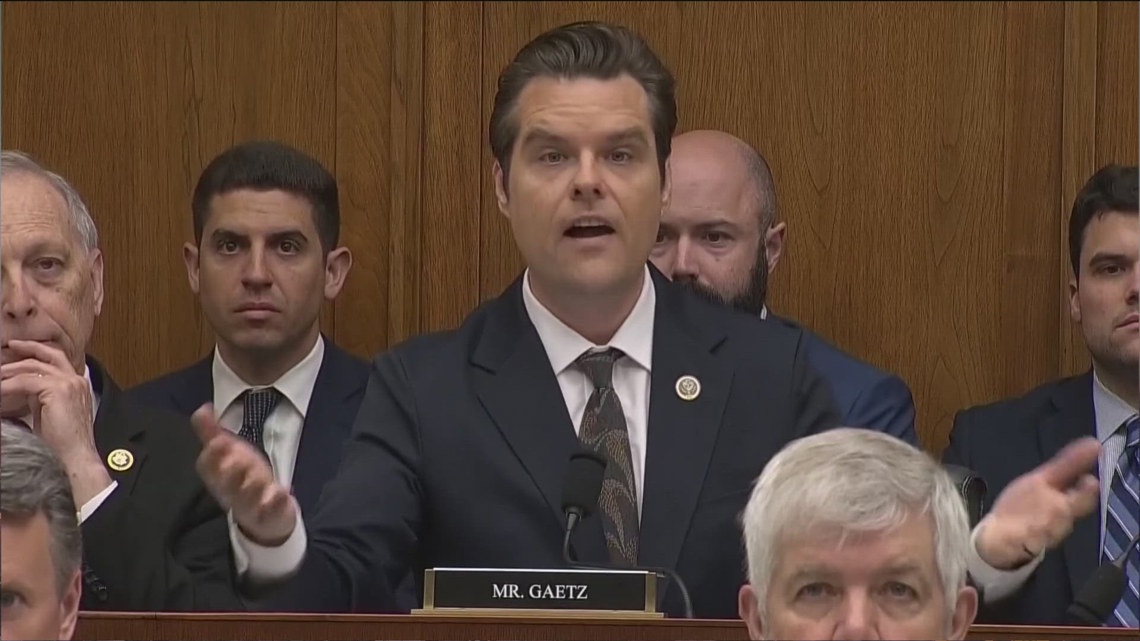CBS News
The Social Security Fairness Act is now in the hands of the Senate. Here’s what could happen next.

Efforts to get the Senate to vote on a bill to expand Social Security benefits are intensifying, as the House-passed Social Security Fairness Act enjoys rare bipartisan support but has only a short window of time — six weeks — to be passed.
“We’re guardedly optimistic,” Shannon Benton executive director of The Senior Citizens League, or TSCL, an advocacy group devoted to protecting retirement benefits, said. “There is so much momentum, if it doesn’t get passed now, a lot of people will lose hope.”
Decades in the making, the legislation would eliminate a provision that reduces Social Security payments to some retirees who also collect a pension from jobs that aren’t covered by the retirement program, such as state and federal workers including teachers, police officers and U.S. postal workers. It would also end a second provision that reduces Social Security benefits for those workers’ surviving spouses and family members.
Various forms of the measure have been introduced over the years, but like many legislative proposals, they had failed to get enacted.
“I’ve been working at the league 25 years, and I don’t remember ever not having a version,” said Benton.
Introduced by Reps. Abigail Spanberger, D-Va., and Garret Graves, R-La., the bill was passed by the House in a 327-75 vote late Tuesday night, after a last-ditch effort to derail it by members of the ultraconservative House Freedom Caucus failed.
The WEP impacts about 2 million Social Security beneficiaries and the GPO nearly 800,000 retirees.
What happens next to the Social Security Fairness Act?
Despite having 62 cosponsors in the Senate, the bill still needs to be brought up for a vote by the chamber’s leadership, and soon.
The bill “dies December 31, at the end of the second session of Congress,” Benton said. “Not only would this bill have to start from scratch, but a new person would have to introduce it.”
The Republican and Democratic lawmakers who introduced the measures in their respective bodies either did not run for reelection or lost their reelection bid, as was the case with Ohio Senator Sherrod Brown, a Democrat, who introduced the bill in the Senate.
If the Social Security Fairness Act comes up for a vote in the Senate, it’s expected to pass, having already secured 62 co-sponsors — surpassing the majority needed to send it to President Joe Biden for his signature.
If signed into law, the changes would be effective for benefits payable after December 2023.
What does the Social Security Fairness Act do?
The legislation would cut two provisions that curtail retirement payments for public workers and their surviving spouses and family members, the Windfall Elimination Provision (WEP) and the Government Pension Offset (GPO), which Spanberger and Graves argue are tantamount to theft of those workers’ benefits.
“For more than 40 years, the Social Security trust funds have been artificially propped up by stolen benefits that millions of Americans paid for and that their families deserve,” they said in a Nov. 13 statement.
As things stand now, the WEP reduces the Social Security benefits of workers who also receive a public pension from a job not covered by Social Security. For instance, that would include teachers who don’t earn Social Security through their public school positions but who work part-time or during the summer in jobs that are covered by Social Security, even though they pay into the system over enough quarters to qualify.
The GPO impacts the spousal benefits of people who work for federal, state or local governments — including police officers, firefighters and teachers — if the job is not covered by Social Security. The GPO cuts by two-thirds the benefit received by surviving spouses who also collect a government pension, often offsetting benefits entirely.
For instance, under the GPO, someone who receives a $900 spousal benefit from Social Security but who also has a $1,000 non-covered pension would see their Social Security benefit cut by $667. That would leave them with a $233 remaining spousal benefit from Social Security.
Under the Social Security Fairness Act, the same person would receive the entire $900 spousal benefit.
“Workers should be able to count of the retirement benefits they’ve earned,” said Senator Elizabeth Warren, D-MA, an original cosponsor of the bill. “It’s time to pass the Social Security Fairness Act so government workers and their families and people with disabilities are not punished for earning multiple sources of retirement income.”
What is the chance of the Social Security Fairness Act passing?
The biggest opposition to the bill is its cost. The Congressional Budget Office estimates it would cost upward of $190 billion over a decade.
“It would hasten the combined trust funds shortfall by six months to a year, when it’s already in trouble,” said Benton, who said TSCL supports reforming Social Security to resolve its projected insolvency in 2033 to 2034.
“The long-term solvency of Social Security is an issue that Congress must address — but an issue that is wholly separate from allowing Virginians, Louisianans, and Americans across our country who did their part and contributed their earnings to retire with dignity,” Graves and Spanberger said in their joint statement.
CBS News
U.S. received Iran’s written assurance it was not actively trying to assassinate Trump

The U.S. received written assurance from Iran before the presidential election that its leadership was not actively trying to assassinate President-elect Donald Trump, CBS News confirmed, according to a source with direct knowledge of the correspondence. The message arrived after the White House in September affirmed that killing a former U.S. president or former U.S. official would be seen by the Biden administration as an act of war.
“We consider this a national and homeland security matter of the highest priority, and we strongly condemn Iran for these brazen threats,” National Security Council spokesman Sean Savett said in a statement in September.
Iran said in its message, which was conveyed by a third party, that it understood this premise. The Wall Street Journal first reported Iran’s message to the U.S.
The Justice Department is currently prosecuting at least two individuals alleged to have been part of murder-for-hire plots to kill Trump while he was still a candidate. One operative working for Iran’s Islamic Revolutionary Guard Corps told federal investigators that he was tasked in September with “surveilling, and, ultimately, assassinating” Trump, according to court records unsealed last week.
Prosecutors said Farhad Shakeri, who is believed to be residing in Iran, told investigators in a phone interview that unnamed IRGC officials pushed him to plan an attack against Trump to take place in October. If the plan could not come together in time, the Iranian officials directed Shakeri to delay the plot until after the election because the official “assessed that [Trump] would lose the election,” the charging documents said.
In early August, a Pakistani national with alleged ties to Iran was arrested and charged with plotting a murder-for-hire scheme targeting U.S. government officials and politicians, according to charging documents unsealed Tuesday.
A U.S. official pointed out that Iran did not task its most effective proxy force, Hezbollah, with carrying out these plots. This official described Iran’s approach to date as “nice if it works. If it doesn’t, then it’s not a problem.”
In response to inquiries suggesting that “Iran told U.S. it wouldn’t try to kill Trump”, the Permanent Mission of the Islamic Republic of Iran said it would not comment on official messages between two countries.
The mission said in a statement, “The Islamic Republic of Iran has long declared its commitment to pursuing Martyr Soleimani’s assassination through legal and judicial avenues, while adhering fully to the recognized principles of international law.”
Trump has raised the ire of Iranians for a few reasons. He exited the international Iran nuclear agreement, which had lifted some sanctions in exchange for restrictions on Iran’s nuclear program. He also directed the 2020 airstrike that killed top Iranian commander Gen. Qasem Soleimani. Since then, some Trump administration officials and military officials received threats from the regime, among them, Robert O’Brien, who was national security adviser during the strike. His predecessor in the job, John Bolton, who was part of the maximum pressure campaign that exerted sanctions pressure on Tehran, has also received threats.
In 2022, the U.S. intelligence community assessed that Iran would threaten Americans — both directly and via proxy attacks — and was committed to developing networks inside the U.S. Two persistent threat assessments submitted to Congress by the State Department in January 2022 cited a “serious and credible threat” to the lives of former Secretary of State Mike Pompeo and former Trump administration Iran envoy Brian Hook. The non-public assessments showed that throughout 2021 and again in 2022, the State Department determined that round-the-clock, U.S.-taxpayer-funded diplomatic security details were needed to protect both men. That continues today.
Multiple former officials have spoken to CBS about duty-to-warn notices that they have recently received from the FBI and other agencies regarding the ongoing threat from Iran and Iranian-hired actors, implying the U.S. is taking the threat seriously and not taking the Iranian regime’s assurances at face value.
contributed to this report.
CBS News
National security implications of Trump’s Cabinet picks

Watch CBS News
Be the first to know
Get browser notifications for breaking news, live events, and exclusive reporting.
CBS News
Doctor explains how RFK Jr.’s plans could affect Americans’ health

Watch CBS News
Be the first to know
Get browser notifications for breaking news, live events, and exclusive reporting.










